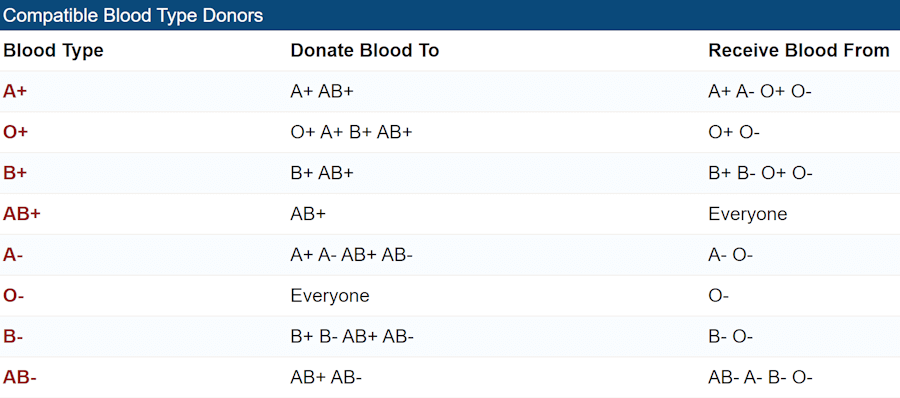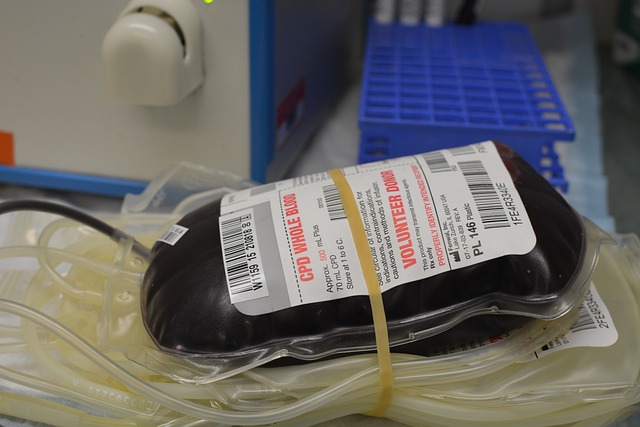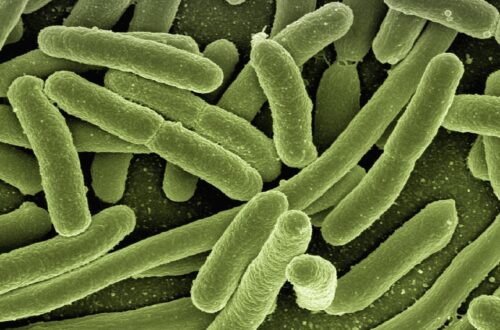
The Best 14 Mysterious Facts About Rh Negative Blood
Facts About Rh Negative Blood
There are some strange facts about RH negative blood.
Did you know that less than 15% of the world’s population has a rare blood type called Rh negative?
This type of blood is quite mysterious and often associated with paranormal theories and conspiracy theories.
Fascinatingly, there are intriguing fun facts and stories behind people who have Rh negative blood. From potential health benefits to its ancestral origins.
This article will explore some interesting facts about this rare blood type. You may be surprised by what we uncover!
What is Rh Negative Blood?
Rh negative blood is a rare type of blood that lacks the Rh factor, a protein found on the surface of red blood cells in most people.
Only about 15% of the population is Rh negative, and it is more prevalent among certain groups such as people of European descent.
The reason for this unique character remains unknown and has been a topic of interest among researchers for years.
Rh-negative individuals can face complications during pregnancy if they carry an Rh-positive fetus.
This can occur when an Rh-negative mother’s blood comes into contact with her baby’s Rh-positive blood.
Causing her body to develop antibodies that attack the fetus’ red blood cells.
Medical professionals have developed treatments like RhoGAM injections to prevent these complications and ensure safe pregnancies.
Despite its prevalence in some populations and potential medical implications, little is known about why some people have Rh negative blood while others do not.
Scientists continue to study this mysterious phenomenon in hopes of uncovering more information about human biology and evolution.
Understanding Blood Types

Blood types are determined by the presence or absence of certain proteins called antigens on the surface of red blood cells. There are four main blood types: A, B, AB, and O.
People with AB blood types have both A and B antigens on their red blood cells, while those with type O blood have neither A nor B antigens.
Additionally, blood can be classified as either positive or negative based on the presence or absence of another antigen called the Rh factor.
Individuals with a positive blood type have the Rh antigen, while those with a negative blood type do not.
When a person receives a blood transfusion, their immune system can potentially react to the foreign antigens present in the donated blood.
This is why it is important to match blood types between donors and recipients to prevent potentially dangerous immune responses.
For example, someone with type A blood should not receive type B blood, as their immune system may mount an immune response against the foreign B antigens.
Another important consideration in blood transfusions is the presence of Rh antigens.
People with a negative blood type can develop an immune response if they receive blood from someone with a positive blood type, as their immune system may recognize the Rh antigen as foreign.
This can lead to potentially serious complications, so it is important to carefully match blood types and Rh status before transfusions.
Overall, understanding blood types and the potential immune responses that can occur during blood transfusions is crucial for ensuring the safety and efficacy of these life-saving procedures.
Medical professionals carefully consider blood type and Rh status before administering transfusions to help minimize the risk of adverse reactions.
A List Of 4 Main Blood Groups
A
B
AB
O
One of the most fascinating and mysterious aspects of human biology is our blood type.
While most people are aware that there are four major blood groups (A, B, AB, and O), few realize that there are many more subtle variations within these categories.
One such variation is the presence or absence of the Rh factor, a protein found on the surface of red blood cells. Individuals who lack this protein are said to have Rh-negative blood types.
Famous People with Rh Negative Blood
Rh negative blood is one of the rare blood types that have some mysterious qualities about it. In fact, there are several famous people who have been reported to have this type of blood, which has only added to the intrigue surrounding it.
One such individual is actress Angelina Jolie, who reportedly has Rh negative blood.
Another well-known celebrity with Rh negative blood is actor Johnny Depp.
Although he hasn’t spoken publicly about his blood type, fans, and followers have speculated that he may be Rh negative due to his unique physical characteristics and rumored connections to secret societies.
Other famous people with Rh negative blood include Queen Elizabeth II, Prince Charles, and Princess Diana.
While many believe that having Rh negative blood can lead to certain health risks or even supernatural abilities, these claims remain largely unproven and shrouded in mystery.
In conclusion, while the origins and implications of Rh negative blood remain somewhat enigmatic, its presence among notable figures in popular culture continues to spark curiosity and fascination among the general public.
Health Benefits of Rh Negative Blood
Rh negative blood is a rare blood type that lacks the Rhesus factor protein on the surface of red blood cells.
Despite its rarity, this blood type has been associated with several health benefits.
Studies have shown that individuals with Rh negative blood are less susceptible to certain diseases such as Alzheimer’s disease, cardiovascular diseases, and some cancers.

Moreover, research suggests that women with Rh negative blood may experience fewer complications during pregnancy than those with Rh positive blood.
This is because incompatibility between an Rh-negative mother and her fetus can lead to hemolytic disease of the newborn (HDN).
A condition where the mother’s immune system attacks the baby’s red blood cells.
However, this risk is eliminated if both parents have Rh-negative blood.
Finally, people with Rh negative blood may also have a higher resistance to certain viruses such as HIV/AIDS and hepatitis B and C.
While more research needs to be conducted into these potential health benefits of having Rh-negative blood, it is clear that this rare trait could hold important implications.
For medical treatments and interventions in future years.
Rh negative and blood transfusion
When it comes to blood transfusions, Rh negative individuals can only receive Rh negative blood or they may risk experiencing adverse reactions.
This is because if an Rh positive individual’s blood is introduced into an Rh negative person’s body, their immune system will recognize the foreign substance and create antibodies against it.
These antibodies can cause severe complications during future transfusions, including hemolytic disease of the newborn.
Because of this risk, it is essential for medical professionals to correctly identify a patient’s blood type before administering any transfusions.
Additionally, individuals with Rh negative blood are encouraged to carry medical alert cards indicating their rare blood type in case of emergencies requiring a transfusion.
Blood Donations In the United States

Rh negative blood is a rare type of blood that only 15% of the world’s population has.
This blood type lacks the Rh factor, a protein found in most people’s red blood cells.
Some researchers believe that Rh negative blood may have extraterrestrial origins due to its rarity and unique characteristics.
Despite being rare, Rh negative blood is still important in healthcare and during emergencies.
People with this blood type can only receive Rh negative blood during transfusions because their immune system will attack any foreign Rh factor proteins.
Additionally, mothers with Rh negative blood can have complications during pregnancy if their fetus has Rh positive blood.
Donating blood, regardless of your type, is crucial for maintaining adequate supplies for emergency situations and medical treatments.
The American Red Cross estimates that one donation can save up to three lives.
With over 21 million transfusions occurring in the United States each year.
Donating regularly can make a significant impact on saving lives and improving healthcare outcomes.
Controversy Surrounding Rh Negative Blood
One of the most intriguing things about Rh-negative blood is that only about 15% of people possess it.
This rare blood type has garnered attention in recent years due to the controversies surrounding its origins and potential health risks.
Some believe that Rh-negative blood may trace back to extraterrestrial beings.
While others suggest that it could be a result of genetic mutations or evolutionary changes.
Despite the lack of concrete evidence supporting these theories.
Many individuals with Rh-negative blood have experienced discrimination and even prejudice because of their unique status.
There are also concerns about possible health complications for pregnant women carrying an Rh-negative fetus.
As the mother’s immune system may attack and harm the baby’s red blood cells.
Overall, while there is still much debate surrounding Rh negative-blood, one thing is certain.
This mysterious and enigmatic trait continues to spark curiosity and fascination among both scientists and laypeople alike.
Myths and Legends about Rh Negative Blood

One of the most popular myths about Rh negative blood type is that it is alien or non-human in origin.
Some people believe that Rh negative individuals are descendants of ancient astronauts who visited Earth thousands of years ago.
However, there is no scientific evidence to support this claim.
Another common myth about Rh negative blood type is the idea that it gives people special abilities or powers.
Some people believe that Rh negatives have psychic abilities or are more intuitive than other people, but again, there is no scientific evidence to back up these claims.
Finally, some conspiracy theorists believe that Rh negative blood type has a connection to secret societies and even the Illuminati.
This theory suggests that those with Rh negative blood type are part of a select group with superior intelligence and power.
But once again, there is no credible evidence to support these claims.
In reality, Rh negative blood type simply means that a person’s red blood cells do not have the Rhesus factor protein on their surface.
In conclusion,Rh negative blood is a rare, yet scientifically interesting type of blood that can cause many health complications.
It is important to know your blood type in order to identify any potential risks associated with Rh negative blood and how to best manage them.
With the right information and treatment, Rh negative patients can lead normal lives. Educating yourself on this topic is essential.
By understanding more about the characteristics of Rh negative blood, we can continue to find new and effective treatments for those affected by this condition.
Interesting Facts About Rh Negative Blood
Rh negative blood is a rare type of blood that only about 15% of the world’s population possess.
One fascinating fact about Rh negative blood is that it cannot be cloned, which means scientists have not been able to replicate this type of blood in their labs.
It also lacks the Rhesus factor protein, which is found in almost all other types of human blood.
Another intriguing fact about Rh negative blood is its potential connection to extraterrestrial life.
Some conspiracy theorists believe that individuals with Rh negative blood could have extraterrestrial origins.
Or possess special abilities and characteristics due to their unique genetic makeup.
Additionally, studies have shown that those with Rh negative blood may be more resistant to certain diseases such as HIV and malaria.
However, they may also have an increased risk for autoimmune disorders and allergies.
Despite the mysteries surrounding it, Rh negative blood continues to intrigue scientists and researchers alike.
What is the most common blood type?

One of the most common blood types worldwide is type O, which is estimated to make up about 45% of the global population.
Type A comes in second place at around 40%, followed by type B at approximately 10%. Lastly, only about 5% of people have type AB blood.
However, when it comes to Rh factor (a protein that can be present on red blood cells). Around 85% of people are Rh positive and only about 15% are Rh negative.
This makes having a negative Rh factor much less common than having a specific blood type.
Interestingly, those with Rh negative blood may have certain unique characteristics such as lower risk of cardiovascular disease and higher likelihood of being intuitive or psychic.
Despite the mysteries surrounding Rh negative blood, it’s important for everyone to know their own blood type and whether they are positive or negative for the Rh factor.
This information can be crucial in emergency medical situations where patients may need transfusions or other treatments that require matching blood types and factors.
Blood Types: What You Need to Know
Blood is a vital component of our bodies, and it plays a crucial role in our overall health. However, not all blood is the same.
There are different blood types, and understanding them is essential for a variety of medical procedures. In this post, we’ll cover everything you need to know about blood types.
The most common blood types are A, B, AB, and O, while the rarest blood type is AB. Blood type O is known as the universal donor since it can be given to anyone in an emergency.
On the other hand, AB is the universal recipient, meaning that they can receive blood from anyone.
Blood types are determined by the presence of antigens and antibodies on the surface of red blood cells.
The ABO blood type system determines the presence of A and B antigens, while the Rh system determines the presence of the Rh protein.
Blood Donors
Different blood types are essential when it comes to transfusions, as mixing incompatible blood types can lead to serious complications, such as hemolytic reactions or rh incompatibility.
That’s why blood donors need to undergo a blood sample test to determine their blood type before donating.
Besides, blood types have been linked to different health conditions.
For instance, individuals with blood type O have been found to have a lower risk of developing peptic ulcers.
While those with AB blood type are at a higher risk of contracting infectious diseases.
Moreover, white blood cells, or leukocytes, play a crucial role in our immune system, and they can be affected by different blood types.
Understanding blood types can help doctors provide better treatment and care for their patients.
In conclusion, knowing your blood type is crucial, especially if you’re planning to donate blood or undergo a medical procedure that requires a transfusion.
By understanding the ABO blood type system, Rh factor, and the different blood types, you can take better care of your health and make informed decisions regarding your medical needs.
Please share this post, we would greatly appreciate it, thanks. Now read Interesting Facts About Protists





4 Comments
Pingback:
Pingback:
Pingback:
Pingback: